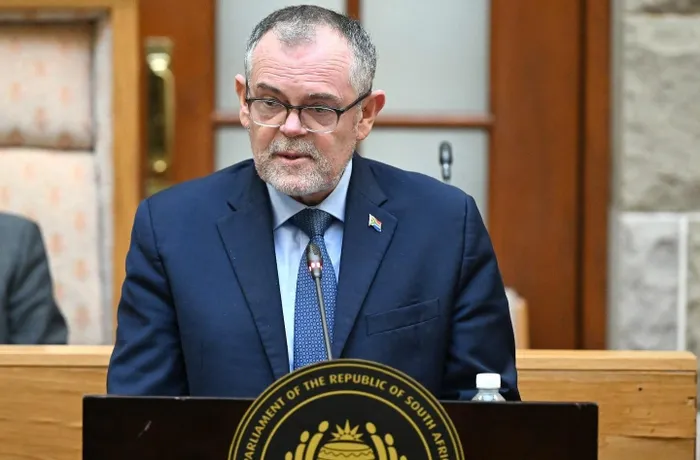Dr Dion George highlights the importance of a sustainable ocean economy at the UN Global Compact dialogue

Minister of Forestry, Fisheries and the Environment, Dr Dion George.
Image: Facebook
In a pivotal address at the United Nations Global Compact dialogue, Dr Dion George, South Africa's Minister of Forestry, Fisheries and the Environment, emphasised the critical importance of a sustainable ocean economy, underscoring a commitment to justice, inclusion, and resilience. His remarks come at a time when South Africa, is the presidency holder of the G20 which aims to highlight both national experiences and global responsibilities.
The theme of the dialogue, "Solidarity, Equality, Sustainability," resonates with the Minister's vision that a viable ocean economy hinges on transparent partnerships between public and private sectors. “Progress depends on bridging public and private strengths,” he noted, applauding the UN Global Compact's 10 Principles as not just guidelines but essential tenets for fostering responsible business practices aligned with the Sustainable Development Goals.
Dr George drew attention to the ocean's central role in global energy and trade security, connecting continents and sustaining billions of livelihoods. In South Africa, efforts are underway to tap into the ocean's vast potential across various sectors, including marine transport, aquaculture, tourism, and offshore resources. The government is implementing stronger governance measures to enhance sustainability and safeguard marine ecosystems.
At the heart of these initiatives lies Marine Spatial Planning (MSP), which ensures that competing sea usage coexists harmoniously, protecting vital ecosystems in the process. “MSP supports our priorities as G20 President by tackling illegal, unreported and unregulated fishing, expanding marine protected areas, and promoting sustainable aquaculture,” he explained.
Dr George clearly articulated that the sustainable ocean economy cannot be separated from a just transition. He pointed out the crucial need to advance ecological benefits while addressing inequalities. Initiatives in fisheries, aquaculture, and tourism, he added, must evolve to empower small-scale fishers and lift coastal communities, fostering job creation in eco-tourism and ensuring the protection of marine biodiversity.
Complementing these environmental efforts, South Africa is actively participating in regional cooperation initiatives to enhance trade security across the Western Indian Ocean. By chairing the Djibouti Code of Conduct Jeddah Amendment, the government is addressing critical issues like piracy, IUU fishing, illegal dumping, and cyber threats. Efforts to green the country’s ports and promote low-carbon shipping underline a vision where secure maritime transport forms the backbone of trade security.
In line with these initiatives, the Coastal Climate Change Adaptation Response Plan exemplifies a national framework prioritising resilience, sustainability, and equity. It integrates climate adaptation strategies into planning while ensuring access to marine resources for vulnerable populations. Dr George called attention to the necessity for predictable finance, which is crucial for municipalities and communities to build resilient infrastructure and safeguard ecosystems.
The Minister reiterated the UN Global Compact’s vital role in embedding its Ten Principles into business practices that align innovation with public purpose, stating that finance and technology must serve people and planet rather than profit alone.
Aligning with the Chennai High-Level Principles adopted during India’s G20 Presidency, Dr George expressed South Africa's readiness to collaborate with G20 partners. “Together, we must build an ocean economy that is environmentally sustainable, socially just, inclusive, and a true driver of resilience,” he concluded, calling for collective action towards a just transition within the oceanic realm for Africa, the global community, and future generations.
Related Topics: